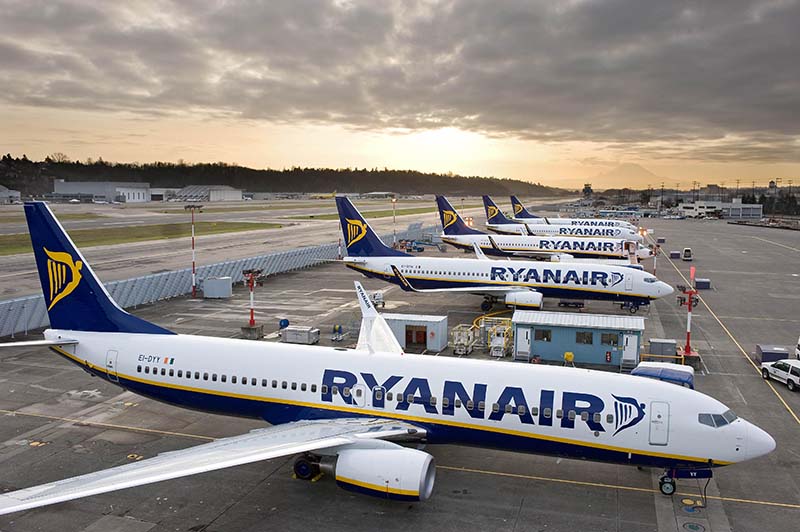Trouble for Ryanair?
Low-cost airline Ryanair has further slashed its winter flight program amid continued coronavirus restrictions on travel. Group chief executive Michael O’Leary blamed government “mismanagement” of the industry during the pandemic for the cuts.

The carrier reported that advance bookings had tailed off for November and December following a late-season spike in October forcing it to axe services across its network, which includes airports like Birmingham, East Midlands, Cardiff, Liverpool, and Manchester in the UK.
Ryanair wants to achieve 70 percent capacity on its winter schedule flight program which will now operate at just 40 percent of services compared to last year.
Some 65 percent of its routes network will be maintained but flights will be less frequent.
Bases in Cork, Shannon, and Toulouse will be closed for the winter and there will be significant aircraft cuts.
The knock-on impact of the coronavirus has already been drastically felt by the airlines and isn’t forecast to improve much.
Ryanair in October of 2019 announced a record 150 million customers across Europe in their past 12 months however, the projections for 2021 predicted around 38 million flight seats to be sold however, this could be revised further downwards if further coronavirus restrictions are imposed.
In a very impactful statement the Group chief executive said:
“We have continued to flex our capacity in September and October to reflect both market conditions and changing Government restrictions, with the objective of sustaining a 70 percent load factor, which allows us to operate as close to break-even as possible and minimise cash burn.
“While the Covid situation remains fluid and hard to predict, we must now cut our full-year traffic forecast to 38 million guests.
“While we deeply regret these winter schedule cuts they have been forced upon us by Government mismanagement of EU air travel.
“Our focus continues to be on maintaining as large a schedule as we can sensibly operate to keep our aircraft, our pilots, and our cabin crew current and employed while minimising job losses.
“It is inevitable, given the scale of these cutbacks, that we will be implementing more unpaid leave, and job sharing this winter in those bases where we have agreed reduced working time and pay, but this is a better short-term outcome than mass job losses.
“There will regrettably be more redundancies at those small number of cabin crew bases, where we have still not secured agreement on working time and pay cuts, which is the only alternative.
“We continue to actively manage our cost base to be prepared for the inevitable rebound and recovery of short-haul air travel in Europe once an effective Covid-19 vaccine is developed.”



